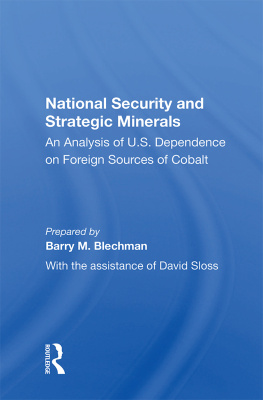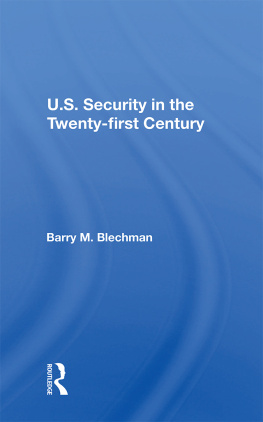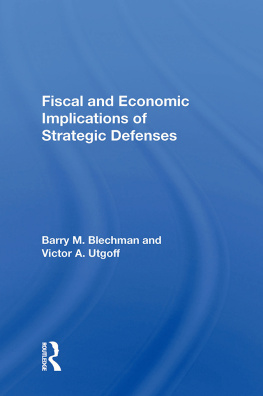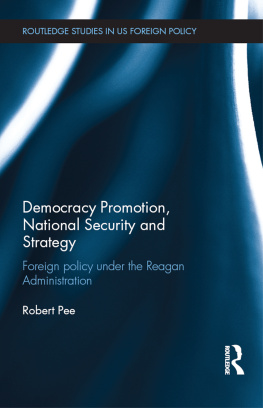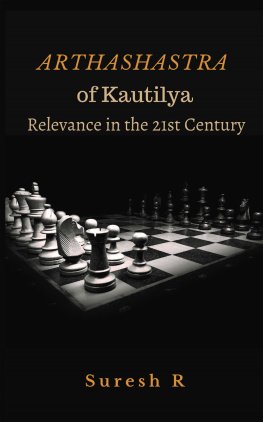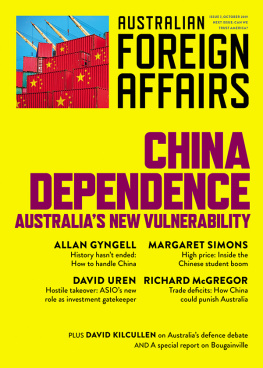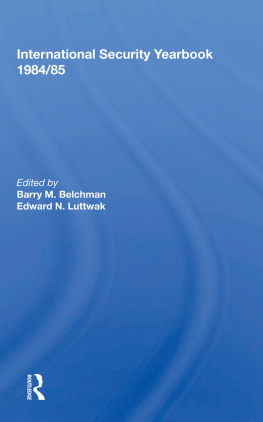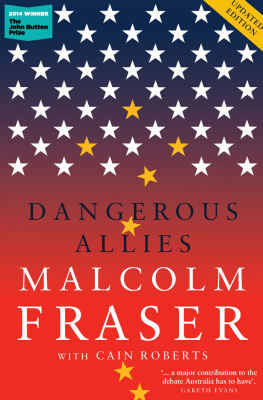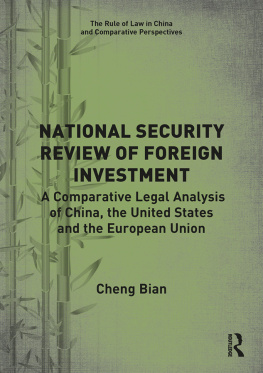National Security and Strategic Minerals
About the Book and Author
Using the mineral cobalt as a case study, Barry M. Blechman explores the consequences of U.S. dependence on foreign sources of strategic minerals. He considers a variety of contingencies in which cobalt supplies could be interrupted and describes alternative policies to guard against such events. He also argues that new technologies to increase the potential viability of domestically mined, competitively priced cobalt warrant further development and evaluation.
Dr. Blechman directs several projects at CSIS concerning national security issues: with Edward Luttwak he coedits the International Security Yearbook, an annual review of world events that influence U.S. security; he directs a major study of organizational and procedural issues in the Department of Defense; and he directs a study of ways to reduce the risks of nuclear war, providing staff support to a working group cochaired by Senators Nunn and Warner. Blechman has worked previously at the Center for Naval Analyses, The Brookings Institution, the Carnegie Endowment, and the Roosevelt Center for American Policy Studies. From 1977 through 1979 he was assistant director of the U.S. Arms Control and Disarmament Agency. His published works on defense issues include the widely respected study of political-military operations Force Without War (The Brookings Institution, 1978), as well as Rethinking the U.S. Strategic Posture (Ballinger Publishing Co., 1982), The Changing Soviet Navy (The Brookings Institution, 1973), and A Guide to Far Eastern Navies (U.S. Naval Institute, 1978). He holds a B.A. from Queens College, an M.A. from New York University, and a Ph.D. from Georgetown University.
PUBLISHED IN COOPERATION WITH THE CENTER FOR STRATEGIC AND INTERNATIONAL STUDIES, GEORGETOWN UNIVERSITY
National Security and Strategic Minerals
An Analysis of U.S. Dependence on Foreign Sources of Cobalt
Prepared by Barry M. Blechman
With the assistance of David Sloss
First published 1985 by Westview Press
Published 2018 by Routledge
52 Vanderbilt Avenue, New York, NY 10017
2 Park Square, Milton Park, Abingdon, Oxon OX14 4RN
Routledge is an imprint of the Taylor & Francis Group, an informa business
Copyright 1985 by The Center for Strategic and International Studies. The views and conclusions expressed in this volume are solely those of the author and do not purport to represent the policies of any government agencies of the United States or necessarily of the Georgetown University Center for Strategic and International Studies.
All rights reserved. No part of this book may be reprinted or reproduced or utilised in any form or by any electronic, mechanical, or other means, now known or hereafter invented, including photocopying and recording, or in any information storage or retrieval system, without permission in writing from the publishers.
Notice:
Product or corporate names may be trademarks or registered trademarks, and are used only for identification and explanation without intent to infringe.
Library of Congress Catalog Card Number:85-50137
ISBN 13: 978-0-367-00803-1 (hbk)
The dependence of the United States and its democratic allies on nations in the Third World for supplies of several minerals critical to modern industrial economiesand particularly important for the manufacture of many advanced weaponshas been a source of concern to policymakers, military planners, and citizens for some time. The 1973-1974 oil embargo made clear both the vulnerability of this nation to disruptions in the supply of certain critical commodities and the temptation offered to foreign producers by such overseas dependencies to attempt to gain political objectives by manipulating supplies. A more limited disruption in the production of cobalt in Zaire in 1978-1979, with severeif only temporaryeconomic effects, confirmed that these vulnerabilities could extend to additional strategic materials.
Although these two incidents in the 1970s stimulated a considerable body of literature on the subject, much of this research has tended toward polemics rather than analysis. Attempts to dismiss overseas dependencies for strategic minerals as an illusory problem residing solely in the minds of "cold warriors" are matched in frequency and intemperance by tracts uncritically viewing all minerals problems as the results of Soviet plans for world domination. Reasoned and detailed explanations of how and why critical minerals' dependencies may threaten U.S. security interests and analyses of alternative policies to deal with these problems have been few and far between.
The present volume is an exception. Barry Blechman analyzes the case of cobalt as an illustration of the problems faced by the United States because of its dependencies on foreign sources of strategic minerals. The author describes the market situations that might create vulnerabilities to supply interruptions, discusses the implications of such interruptions for security concerns, and analyzes alternative means of protecting the nation against these contingencies. His conclusions are relevant for the handful of other strategic minerals, even though the analysis pertains directly only to the case of cobalt.
The Center for Strategic and International Studies of Georgetown University is a research institution founded in 1962 to foster scholarship and public awareness of emerging international issues on a broad, interdisciplinary basis. It is nonpartisan and nonprofit. Its areas of research are selected in consultation with its governing bodies, and its work is entirely nonclassified.
This volume is the latest in a series of studies at CSIS on resources availability and international affairs. It is one of the best.
Amos A. Jordan
President
January 1985
The author would like to express his thanks to Terrence Bracy and Susan Williams for encouraging him to prepare this study. He also would like to thank Judith LaDrew for helpful comments on an earlier draft and Lenda Walker for providing effective secretarial support. He alone, of course, bears responsibility for the accuracy of the material presented in the document and for the opinions and conclusions expressed therein.
Cobalt is a strategic mineral, an essential element for the foreseeable future in the production of aircraft engines and other items that contribute to the defense of the United States. Roughly 50 percent of the cobalt used by this nation is obtained currently from nations in south-central Africa, most importantly from Zaire. In the absence of policies designed and implemented to alter this situation, the prospect, at least through the remainder of the century, is for a gradual increase in the U.S. demand for cobalt and for continued dependence on south-central Africa for the satisfaction of much of this demand. This prospective dependency has worrisome implications.
Stability in southern and central Africa deteriorated substantially during the late 1970s and early 1980s. Military conflict within many nations of the region is on the rise; political relationships have frayed badly. Given this instability, the risk of future disruptions in the supply of cobalt from this region must be considered to be relatively high. In all probability, however, the consequences of disruptions originating from local sources would be relatively constrained. According to regional experts, over the full course of the decade disruptions on the order of 20 to 50 percent of a single year's exports from the region can be expected. Such a contingency would result in substantial increases in the price of cobalt (and thus in U.S. payments abroad) but not in any substantial decline in U.S. economic activity nor in risks to the nation's security.


